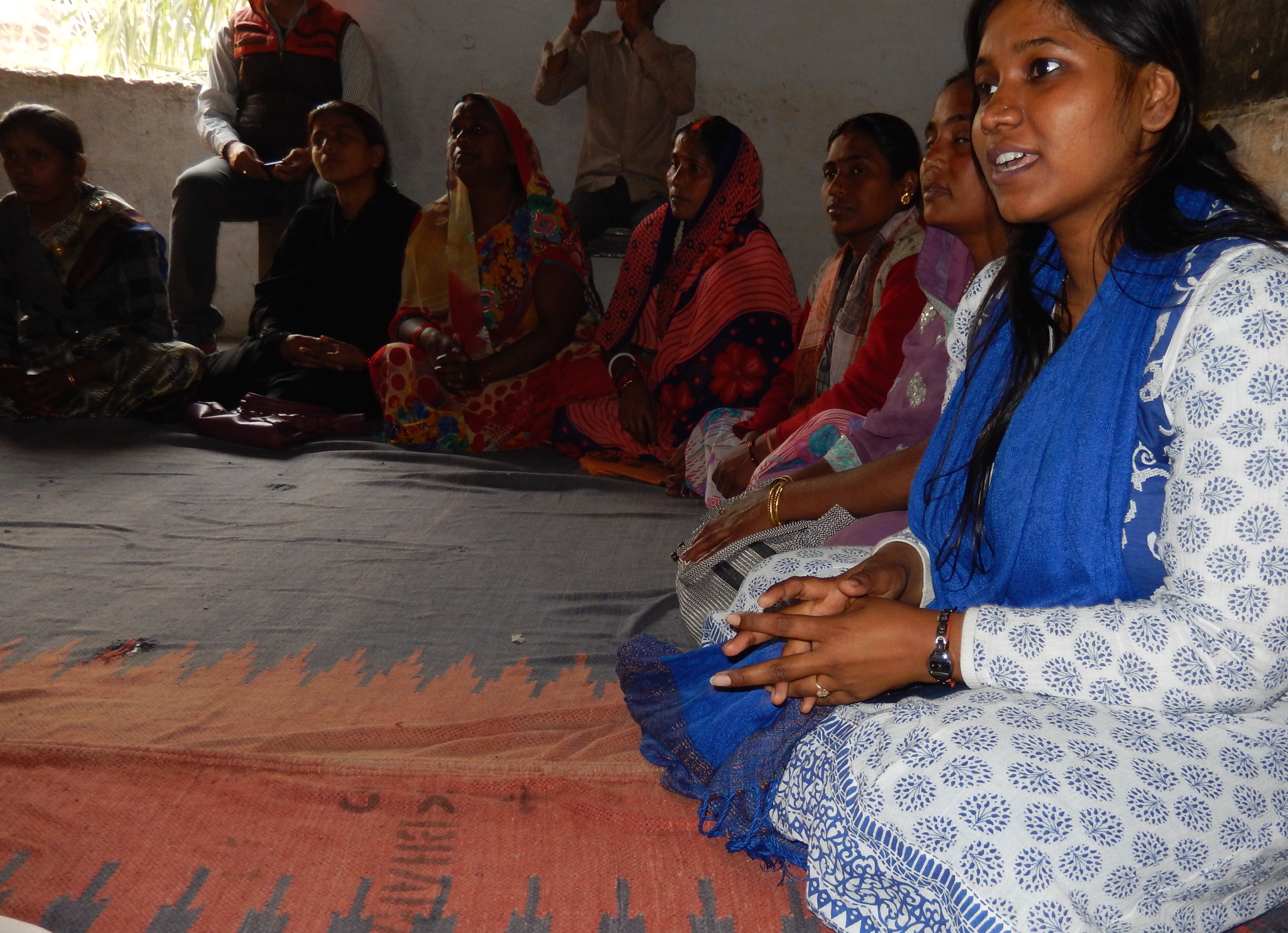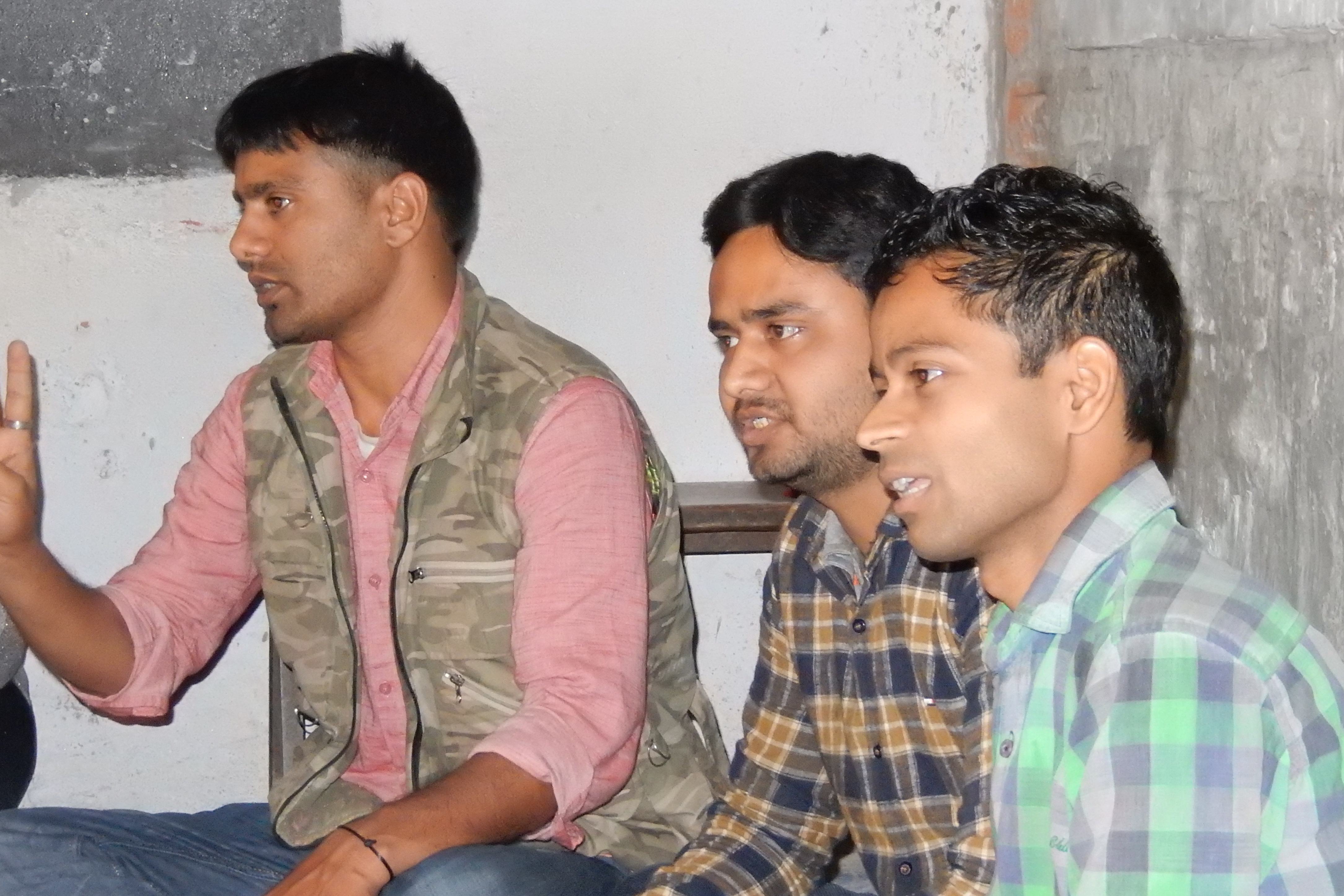The young volunteers from the Indian NGO Aangan know exactly the obstacles facing adolescents who want to get away from the powerlooms and be able to study. Recently we met with two Aangan volunteers who had worked on the deafening looms to make cloth from the time they were 10, so it’s their own story. One of them explained: “Everyone wants to do something else, and that’s what we tapped in to. Because you don’t think there’s a way out, because there’s no support, you convince yourself there’s nothing else you can do in your life. This is all you know.” But these young men wouldn’t accept this.
With support from the Freedom Fund’s local partner, Aangan, based in Varanasi, northern India, over the last two years, they went door to door around this poor, mostly Muslim neighbourhood of the city. Their goal was to stop child labour. At first it seemed hopeless. No-one was listening, but now they laugh as one of them explained to us “We wouldn’t take “no” for an answer.” Finally, they’ve been able to enrol 500 children in school. They then worked with other local volunteers on a big health campaign, linking government health workers with the families, resulting in 750 children getting their immunisations.
Child labour is a big problem in this weaving community, resulting in lots of health problems, especially respiratory illnesses. Children sometimes start work from as young as 8, and because the electricity supply is sporadic, they often can’t attend school because they have to work at night when electricity is working. School enrolment of girls is especially low because the parents worry about risks to their adolescent daughters. Early marriage is also sometimes seen as a way to keep the girl “safe”. It’s this isolation at home that makes the girls especially keen to join in Aangan’s adolescent girls’ activities.
Aangan’s method is to bring together at least 10 mothers into Parents against Child Trafficking/Harm (PACT) groups. The women receive in-depth training on key issues, and they then help to organise groups for girls and groups for boys. Within these groups they use a dynamic curriculum, often based on episodic stories and vignettes that challenge the young people to think about options, risks, opportunities and the need to protect one another. The idea is to mobilise everyone in the community towards child protection. It’s an uphill struggle, as some parents say that letting the girls go to these groups is a waste of their time, and that it will spoil them. Aangan helps the girls learn how to negotiate with their parents.

Local Aangan coordinator and mothers group. Photo: G Baumann © The Freedom Fund
Judging by the challenges in the community we visited, the work is desperately needed: Just 10 days ago, a stranger was introduced to a mother in the community, offering to pay to arrange the marriage of her daughter to an eligible bachelor. In fact, the stranger offered that if the woman could also find 5 other girls, then they too could get a suitable match. The mother wasn’t sure, but she wanted to get her girl safely married. She went to speak with the PACT group. PACT members immediately saw the risks. If the outsider was offering to pay, there must be something wrong.
But the mother was hard to convince. They said “You won’t know where she is, and how can you be in touch?” Worried that the family might quickly send the girl off, they organised a large open meeting for parents. They talked collectively about risks of child marriage, and people shared real examples of what can happen. Finally the mother was convinced. The Aangan workers and PACT mothers often organise such meetings.
We met with a group of about 15 of the Shakti girls, aged 15 – 18. Many are now doing vocational courses or going to college. The girls say that all girls should know how to get their rights and how to keep safe. “As we move forward, we’ll take other girls with us.”
Meanwhile the two young men are continuing their own struggle. One is now doing an MSc in Social Work, while another is doing a law degree. We asked how they fit it all in and have an income. They explained that they still work on the powerlooms at night till 3am, then they sleep till 11am, then they go to college in the daytime. One said “In life, if you don’t struggle, you won’t get ahead.”
Image (right): Aangan volunteers – former child labourers – who went door to door to enrol children in school. Photo: G Baumann ©Freedom Fund




